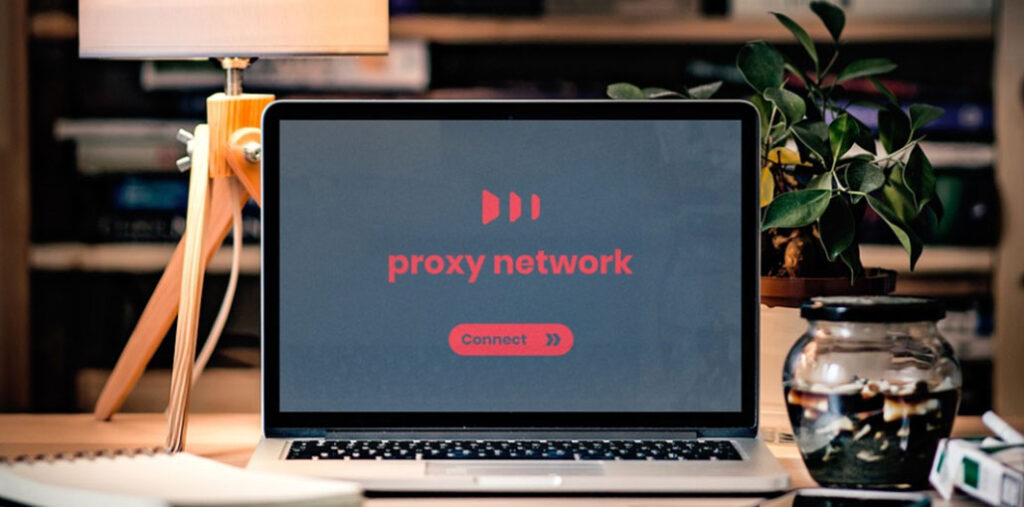The frequent Internet user is familiar with the word proxy, but not everybody knows all capabilities it poses. Proxies are one of the most popular methods to access the Internet from local networks in big companies.
There are thousands of proxies available, so it is important how to use them and for what. It may happen you already use proxy as your connection speed is slow, and you have access to web resources.
You may check this in internet options for Windows (in the LAN settings the proxy address will be seen). In MAC OS X, the information is available in system preferences in advanced network properties (the tab proxies).
What is a proxy?
A proxy or proxy server is an intermediate server between the User and the web resource. This means, for example, that the User’s request first will go to proxy and, after processing (if necessary), will go to the web resource. In some cases, the request can be fulfilled using proxy cash.
Such intermediate elements can be hidden for both parties or only for the one; this could be done on purpose.
There are many types of proxy servers. However, one of the categorizations is based on essential functions:
- Transparent proxy, the easiest type one as not masking User’s IP address and is used openly. This type of proxies is commonly used in public WI-FI networks to access the Internet to authorized persons.
- Anonymous proxy, this type masks user IP address. But the confidentiality has the minimum level and can work with all types of protocols. One of the versions of this type is elite anonymous proxies deleting the user IP address in all commands.
- Private proxy, this type of proxies constantly changes IP address and provide fake user data.
- A reverse proxy, collecting user’s requests, and balancing traffic load.
Also read: Who is Better For Security: VPNs vs. Firewalls vs. Antivirus
Proxy servers can be different based on the location of the servers if they are in private homes or provided by Internet providers.
- Residential proxy, these proxies use computers of real persons worldwide, but such proxies are very slow.
Proxy from data centers, these proxies are located on servers with high-speed connections and special software. Due to the high costs of such server’s data centers are limited.
All types of proxy can be created as a separate program or in web format.
Another categorization is based on technical parameters – protocol:
- HTTP proxy, not safe but most common proxies.
- HTPPS proxy, more trustable type as provides encryption. HTTPS proxy works with SSL – additionally safety layer to protect transferred data. It is essential during bank transactions.
- SOCKS, the safest and flexible. Such proxies have TCP connections with firewall tunneling. SOCKS5 is the safest type out of other SOCKS.
- FTP, commonly used in corporative networks and for web design, is highly protected from external attacks.
Here are described the main types of proxies, but there are many others: forward proxy, static or dynamic proxies, open proxies, etc.
What are proxies used for?

A proxy server is a multifunctional element that can be used for many purposes. The described options are discussed from the user’s point of view.
- To provide an additional level of confidentiality. Proxy server, as described earlier, can mask or corrupt user IP address.
- To provide access to the Internet from a local network. There are additional options for this network administrator to limit access to the required websites (for example, social networks), limit the amount of Internet traffic, and minimize advertisements. The traffic can be easily calculated at proxy servers.
- To provide access to the prohibited or censored web resources.
- To increase user’s safety by redirecting most of the attacks on proxy-server. The external web resource can see only proxy server IP addresses.
- To change the user’s geolocation to any required one as a proxy server are available from all locations.
- To increase the speed of internet connection.
- To decrease user cash as cash can be stored at proxy servers. Also, some data can be stored at a proxy server.
- To safe Internet traffic as the data can be transferred in a compressed way.
The trustable proxy server should be chosen for all required scenarios, as it should have protection to store personal user data safely. Otherwise, for example, the web resource can easily find the user’s actual location.
Also read: Top 10 Open Source Network Security Tools for Web Apps
Free and Paid Proxies
The user can buy a proxy on many specialized websites or download them for free. In addition, some Browsers provide inside the paid package proxies from different locations.
Several aspects are essential for choosing a proxy: it should work; the ping amount should be low; the country indicated for a proxy is the country where the proxy IP address is coming from; some proxies are banned to different resources. It is recommended to use a paid proxy when the user has challenging tasks with high-level confidentiality and when high connection speed is required; for such proxy, all capacities will be used only by one user.
Unfortunately, almost all free ones work too slow with mistakes; the servers often close and switch to the paid ones, anonymity is not granted, and even some proxy can be used mainly to prepare cyber-attacks.
Summary
Proxies are supported by all well-known browsers, very easy to install most of the types. It is elementary to connect to a proxy server for that you need only address and password; this could be made in any browser settings or use special programs. The programs support several proxies that allow choosing the required one for each activity; some browsers support several proxies in different tabs simultaneously.
There are many types of proxies on the market that can suit each described purpose, a good option that has good proposals demo version to understand its quality.
Nowadays proxy server is not only an intermediate step in traffic forwarding from the user to the Internet, but it can also provide security, a high level of privacy, access to blocked resources, and other valuable features.










Leave a comment